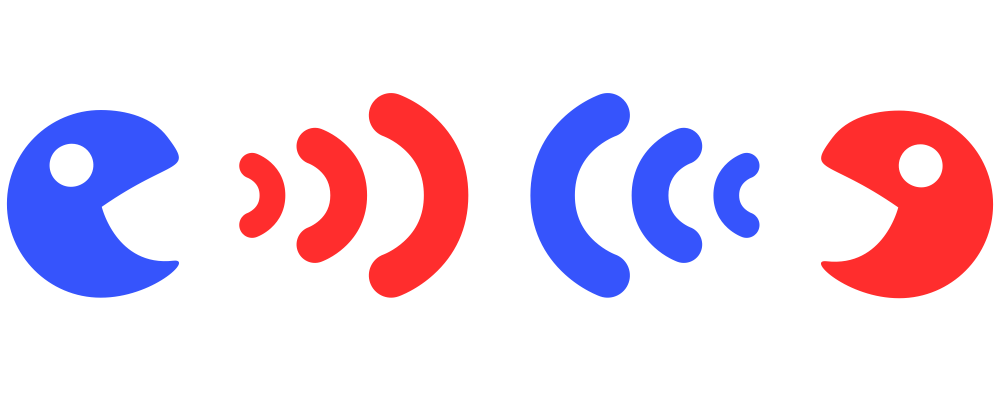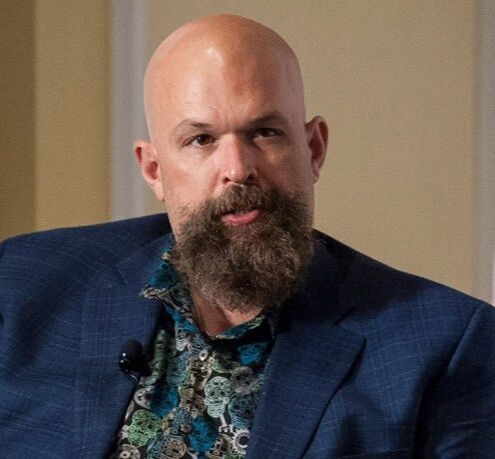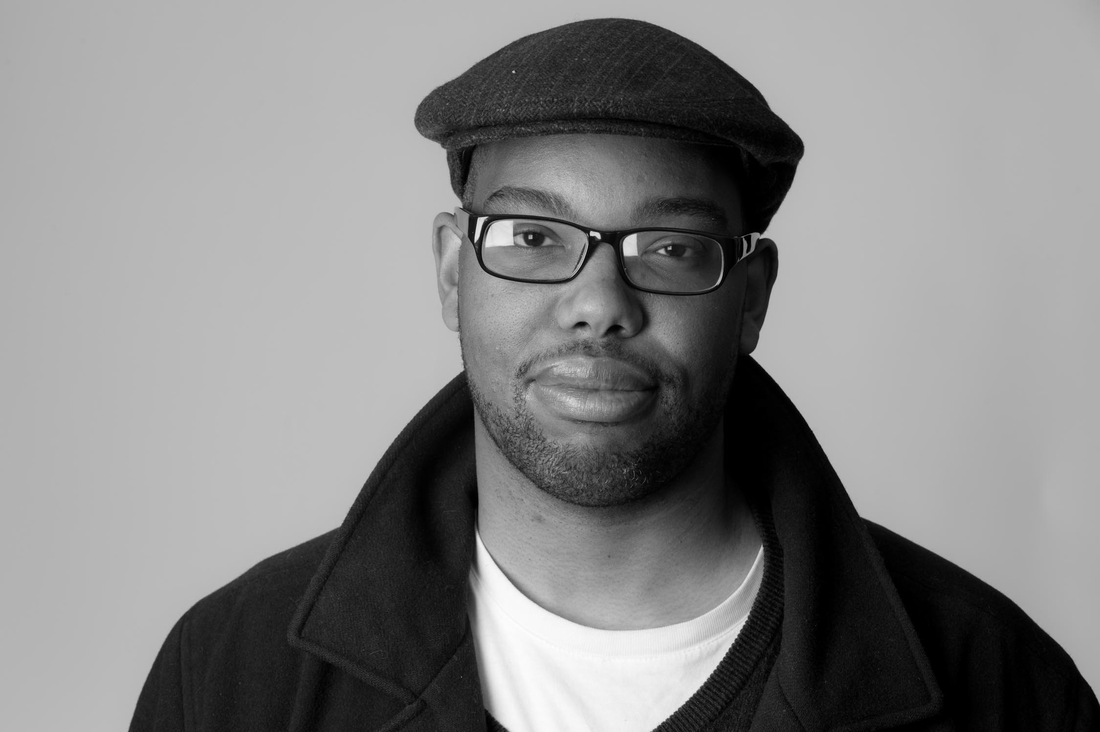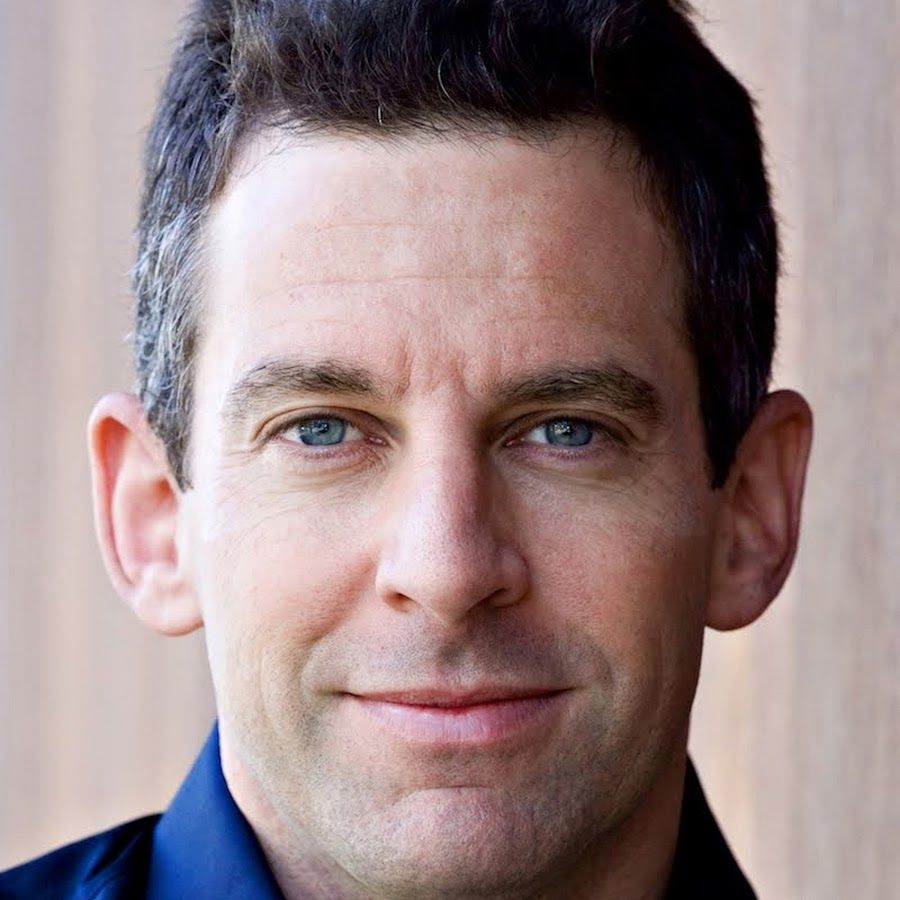Click the image below to read the case for DiscussIt:
A collection of quotes from people across the ideological spectrum highlighting the need to move away from text-based social media platforms to a solution like DiscussIt:
|
"Many people want to see outside their bubbles but lack reliable direction... I suppose I have the writer’s lamest aspiration of all: to “start a conversation.” I don’t know how to solve the problem, but I feel pretty confident it is located at the level of institutions and norms.”
|
|
Twitter and Facebook... seem to play into our impulses towards tribalism. I've had other experiences like my experience on Clubhouse... where you're using audio and video when you have engagement with people. The dopamine rush that people get when they're ripping into their political opponents on Twitter and the celebration they receive after is one thing, but I do wonder about opportunities to create new communities... While the Pandemic hasn't quite brought us together... it may also be humanizing in certain other ways and allow you to really think about what matters in different contexts. In these other platforms where we're not just shooting textual assaults at one another and anonymous strangers over the internet, but rather engaging with each other, you can hear my voice, you can understand that I'm being sincere when I'm saying the thing that I'm saying, you can see in my eyes that I share your concern, you know something about me and my kid...
|
|
So what can we do to make compassion and empathy less rare and random in America today? Be like Tommy Gunn, and without repudiating your own views, invite the “other” onto your stage (whatever your stage is). Be like Hawk Newsome and go where people are hostile and tell them what is in your heart. Reject the homogeneity and anonymity of social networks. Let’s go even further and make this into a national movement of American renewal. Celebrate leaders who go where they ordinarily wouldn’t be welcome. Support institutions dedicated to a respectful competition of ideas. Patronize news outlets that find ways to combat anonymous hatred, no matter how profitable that hatred is.
|
|
You do not win a debate by having the best argument, but by being the best debater. Style matters just as much as substance, and in person I tend to be disorganized, uncertain, and easily flustered. I prefer writing to speech: When you write, you actually get to think about what you’re going to say before you say it. When you have to improvise an instantaneous response to someone, you’re stuck with whatever first happens to come out of your mouth. There is no editing process. If you say something stupid, if you flounder or struggle to come up with words, your opponent will thrash you...Public argument is not an actual substitute for political organizing. It is a very limited tool. But it is a tool, and it’s one lefties need to get better at using.
|
|
The alternative to political discourse — you know, with sentences and stuff — is a hokey luchador wrestling match between the mind-killed partisans, grunting modern primitives, talk-radio hucksters, cable-news hustlers, purveyors of freeze-dried apocalypse lasagnas and mystical doggie vitamins, associate professors of being pissed off and generally aggrieved, and the sundry other dumbasstical sh**weasels who currently dominate our political conversation, a spectacle and a debacle that will go on and on — until it doesn’t. The problem for mass democracy is that the demos does not think. It cannot. It lacks the requisite apparatus. Groups do not think in any meaningful sense. People think—one at a time. And they exchange thoughts, to use one of those expressions so common and shopworn that we have forgotten what it means. The value of such exchange is detectable in its absence.
|
|
Nobody talks anymore. Nobody listens anymore. We have allowed these gadgets, phones, and devices to ruin our ability to be intimate, vulnerable and connected as people. The gadgets own us, not the other way around. This age of “social media connection” is causing division in families, in churches, in marriages and friendships. Texting is not talking. Conversation is verbal, spoken, audible words folks... how we share our deepest thoughts, needs, and desires one with another. The next time you are tempted to tweet, text, post on facebook, or send an email. Stop. Think. And pick up the phone, Skype or invite the person to coffee. Watch what begins to happen in your life as a result. Your relationships across the board will start to blossom, grow, and thrive!
|
|
There’s no actual conversation taking place on Twitter. There’s me saying something and you responding to it and me not responding to you mostly, and then me tweeting another thought and then you responding to it. The idea of having a long-form conversation, every times it happens on Twitter, at the end of the conversation you find someone saying this isn’t the appropriate place to have a long form conversation, if we were gonna do that we’d be on podcasts, we’d be writing each other letters...even when I’m talking with people on the left, instead of having a conversation on twitter about the topic, I’ll pick up the phone and call them and have the conversation because you can’t have a good conversation on Twitter.
|
|
I got off Twitter, I don’t think I ever should have been on Twitter. If you are interested in nuanced arguments to the world, it’s a bad venue for it. You see when people are talking and they’re not in front of you, it’s easy to misunderstand–not just the words they say, but their motives–how they’re saying things to you–it’s almost built to pull out the least sympathetic part of you...I can definitely think of examples where I just assumed the worst, in a way I would not if I were just sitting there having a conversation with somebody even if I completely and totally disagreed with them. I think it’s an inferior tool for higher-level debates.
|
|
I believe that justice is best advanced, that repressive outcomes are best avoided, and that vulnerable groups benefit disproportionately from a polity in which the public sphere is characterized by tolerance, forbearance, deliberate cross-ideological engagement within moderating institutions, and attempts at moral suasion rooted in love. At the group level, my sort of public sphere serves as a bulwark against the threat of authoritarianism that targets minorities; on an individual level, I believe engagement within it causes many to soften their most extreme views... Individuals participating in the public sphere, and publications that aspire to cultivate a broad civic dialogue, ought never slip into indifference to injustice or abandon moral judgments. But neither should they mistake tolerance for moral collapse. Much can be worked out by objecting to the objectionable in ways that do not foreclose the possibility of all cooperation.
|
|
In general our communications are transitioning towards being decontextualized... I’m somebody who likes talking on the phone. When people feel that moment of loneliness... maybe you call your partner. But I think a lot of people just go on Facebook or Instagram. I don’t want to call that not a form of social connection, but it has a lot less context than somebody whom you call every couple of weeks and have a 45 minute conversation. And I worry about what it’s doing to us. There’s a trade off between talking to everybody vs. choosing to talk to fewer people who can hear us more fully.
|
|
Social media has changed something very fundamental: what do we do when we communicate? When two people talk in private they might be trying to influence each other or bond… it’s difficult, but possible to take the other person’s perspective. Put people in front of an audience…that changes the nature of what is said and the degree to which you want to take the other person’s perspective. Now put them in front of a giant audience that you cannot see…you and i are no longer talking. We’re each talking to our respective audiences.
|
|
Twitter takes underlying trends and makes them more extreme. To borrow from Spinal Tap, it turns everything up to eleven, all day, every day. Yes, it can enhance joyful things...But because of who’s on the platform, political Twitter’s negative reality all too often infects the real world to disastrous effect. And there’s the problem: Absent large-scale collective action by the political/media class to reject the platform, simply logging off Twitter is merely a personal defensive mechanism — a sometimes necessary mental-health break that all too often correlates with diminished influence in the national political debate...But behind those angry, hyperbolic tweets...are the most engaged and most influential men and women in American public life. It’s “just” the American political class putting its rage and intemperance on display, hoping to remake the world in its own irate image. And the surprising success of that attempted makeover should scare you, whatever your own political views are.
|
|
I’ve pulled back from social media to a big degree...it’s amazingly toxic in a way that I never appreciated...the benefit [of quitting] has been immense. It’s a kind of hallucination machine where you think you need to pay attention to certain voices in the real world you would never see... in any other format [than an open-ended conversation] you don’t have the time to wonder whether or not you’re wrong about what you think the other person just said. Then you add to that the cynical point-scoring that’s politically motivated that’s omnipresent in the usual context, that you can have people that aren’t having a conversation. It’s like: ‘I’m going to say the thing that makes you look bad in the 45 seconds we have left.’ No wonder we’re not making progress on hard topics
|
|
Invite your enemy to talk - give them a platform to talk because then they will reciprocate. Invite your enemies to sit down and join you. One small thing you say might give them food for though, and you will learn. Establish dialogue. It’s when the talking stops that the ground becomes fertile for fighting. When two enemies are talking, they're not fighting... When you are actively learning about someone else you are passively teaching them about yourself. So if you have an adversary with an opposing point of view, give that person a platform. Allow them to air that point of view, regardless of how extreme it may be. Give them a platform. You challenge them. But you don't challenge them rudely or violently. You do it politely and intelligently. And when you do things that way chances are they will reciprocate and give you a platform.
|
|
Everything about Twitter’s interface encourages a mind-set antithetical to journalistic inquiry: It prizes image over substance and cheap dunks over reasoned debate, all the while severely abridging the temporal scope of the press...I’ve been a Twitter addict since Twitter was founded. For years, I tweeted every ingenious and idiotic thought that came into my head, whenever, wherever; I tweeted from my wedding and during my kids’ births...But Twitter is not that carefree clubhouse for journalism anymore. Instead it is the epicenter of a nonstop information war, an almost comically undermanaged gladiatorial arena where activists and disinformation artists and politicians and marketers gather to target and influence the wider media world.
|
|
Shying away from public conflict does not end the conflict — it often just replaces public disagreement with private contempt, empowers and expands space for perpetrators to continue to do harm, and distracts considerable energy from important work that may be underway. I believe that our public discussions and disagreements, especially when rooted in a larger commitment to the work at hand, are things we can all learn and grow from...
|


















